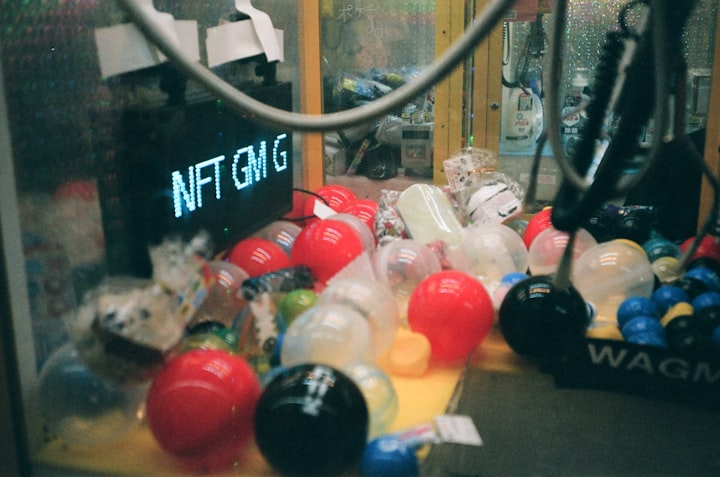What legal issues in NFT contracts
in the gaming and gambling industry?

Contracts related to the so-called minting and sale of NFTs in the gaming and gambling industry raise legal issues that need to be adequately addressed.
The video game and gambling industries have increased their potential in recent years also by virtue of the structure of their business model that is well suited to the technological evolution of today. Video games and casino games allow users to spend real money to achieve an in-game victory or to gain access to the game's resources. However, if the developers decided to block the functionality of their game, all game resources (characters or missions) would no longer be accessible. Furthermore, existing game assets have no intrinsic value in the outside world. As a result, players cannot monetize in-game purchases in secondary markets to recoup their investment if and when they want to stop playing.greater success in the video game and gambling industry.
In fact, NFTs can guarantee ownership of the products in the video game by rewarding players for their time, loyalty and investment. With the emergence of cryptocurrencies, NFTs are the gateway to a new global gaming economy that rewards players with unique and therefore “non-fungible” digital collectibles. This feature makes them suitable for use in games as representations of characters, goods, and other marketable items. When customers buy these NFTs, they not only exercise “true ownership of the item”, but they can also sell and trade in-game assets on secondary markets to generate profits.
How to regulate the concept of ownership in contracts relating to NFT in gaming
There is a clear distinction between ownership of an NFT and specific intellectual property rights. This arises from the fact that the rights to exploit the works of art are not automatically transferred to the buyer at the time of purchase. In Italy, art. 109 of the Copyright Law clearly establishes that the exploitation rights belong exclusively to the author and are not transferred with the sale of the work, unless otherwise agreed in writing.
As already highlighted with NFT and art: a journey into the world of cryptoart and its legal problems, this rule naturally also applies to NFTs, with the effect that (i) the only subjects authorized to transfer a specific physical work as a token they are the holders of the related exploitation rights; and (ii) when purchasing an NFT it is important to be aware that ownership of the token does not translate into ownership of the exploitation rights of the underlying original work. It is therefore essential to correctly structure the rights granted through NFTs in the related smart contract. This necessarily happens with the support of the blockchain as a technology capable of allowing, among other things, to certify the history of NFT transfers among users and, moreover, to always ensure knowledge and knowability of the authorship of the work.
How to structure the payment model with NFT contracts in gaming?
The agreement between the owners of the IP rights and the companies that mint NFTs and then market them is traditionally structured as a licensing agreement in which exploitation rights are granted in exchange for royalties.
Royalties can be customized based on the project you want to undertake, and the structure of the agreements can vary considering the value of the NFT. Also, whenever an NFT is sold on secondary markets, licensors can earn a certain percentage on the second resale. In fact, through the underlying smart contract it is possible to predefine the rules for assigning the royalties generated through each transaction. In most cases, NFTs gain value through multiple transactions, as they become collectibles and it is demand that drives their price up. By doing so, licensors can easily monetize their product and have direct contact with fans on most platforms. Traditional royalty monetization systems are often flawed due to a lack of transparency that causes huge losses (in terms of lost revenue) for the creator of the work. Conversely, basing the royalty system on the blockchain can ensure licensors do not lose control over transfers.
This aspect reveals two major legal issues. On the one hand, rights owners need to carefully fine-tune the attribution of rights through NFTs, for example by limiting the maximum number of NFTs to be minted. On the other hand, the terms of the smart contract must be transparent towards potential customers to avoid disputes and damage to reputation.
How to protect IP rights in NFTs?
NFTs in video games, casino games or bingo are related to various intellectual property issues, including the following:
What intellectual property rights should be excluded from licensing agreements with the entity that mintes or markets NFTs in gaming?
When licensing NFT minting rights , it is important to clarify what is licensed and what is excluded. When licensing intellectual property for use in an NFT, licensees should grant the right to mint a limited number of NFTs associated with the licensed property. This circumstance will maintain the scarcity (and associated value) of the game-based NFT. Additionally, a licensor may choose to expressly prohibit or impose restrictions on the licensee's right to make modifications associated with the licensed work for the purposes of the NFT. Given the growing prevalence of programmable and generative contributions in games, this circumstance is particularly important.
Do licensors of games know if a character design based on an NFT is protected under copyright?
NFTs can contain images, graphics, brands, designs, and even music in the digital world. As a result, NFTs can draw on pre-existing graphics, characters or objects. In that case, game licensors must obtain their respective licenses from these authors to legally use the protected content for their NFTs. This can be achieved by ensuring that the third party creators have the required rights.
How to enforce claims for termination of rights against NFT users?
Rights holders need to regulate which platforms they can distribute (and resell) the NFTs that carry their intellectual property rights and what royalties are to be paid. Licensors must also ensure with liability and indemnity clauses that the platforms on which their NFTs are distributed comply with regulatory requirements. Since blockchain technology allows transactions to be anonymous, NFTs can, unfortunately, easily be abused for money laundering or illegal transactions. Licensors will therefore have to check whether the platforms provide adequate safeguards against counterfeiting and comply with the technological standards of cybersecurity to protect the image of their brand and their intellectual property rights incorporated in the NFTs.
What are the effects of the termination of licensing agreements on NFTs
Upon expiration or termination of the license agreement, licensors must provide that the licensee no longer has the right to mint , advertise, distribute, sell or otherwise deal with any NFT that uses ownership of the licensed video games.
Additionally, licensors must ensure that the licensee will cooperate to ensure the NFT's migration to a different blockchain, marketplace and / or website designated by the game licensors so that customers can continue to access and use the NFTs.
The transfer of NFT after the termination of the gaming license agreements is technically feasible. It mainly depends on the nature of the blockchain (private or public). To implement the transfer, the asset representation of NFTs on one blockchain must be replicated in the representation on the other chain. Consequently, the total number of tokens on both blockchains must remain constant. This circumstance is usually achieved through the so-called burning or by immobilizing the tokens on the source blockchain and minting or unlocking the tokens on the target blockchain.
About the Creator
Owais Abbas
I will write anything that I like ❤️





Comments
There are no comments for this story
Be the first to respond and start the conversation.